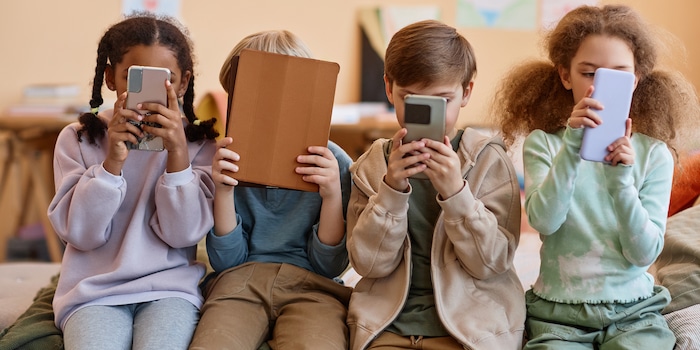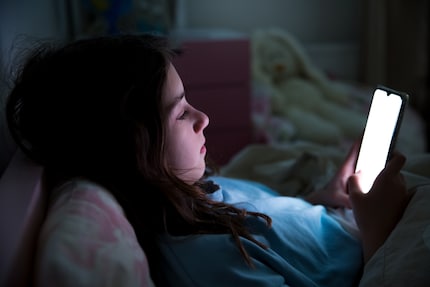
How to reduce your children's screen time
Three measures have a significant influence on children's use of tablets, smartphones and the like. This is the conclusion of a large-scale study from California. A reward system, on the other hand, is useless.
Honestly, how much time have you spent on your smartphone or tablet today? One hour? Two? Longer?
Oh sorry, you thought this article was about your children's screen time and not about you? That's true. But it's closely linked to your own. This is proven by a new study by the University of California in San Francisco involving 10,000 US children aged 12 and 13 and their parents.
The children were asked about their screen usage habits: how often and how they chat, game, watch videos or surf the net, for example. And whether they perceive their own screen time as problematic. The researchers wanted to know from their parents whether and how they use their devices in the presence of their children. Whether they control and limit their screen behaviour. And whether they use a system of rewards and punishments.
No screens at the table and in bed
The data collected shows three essential factors that influence children's screen time. First and foremost: the usage behaviour of parents. If parents are often on the devices before their children, the children also spend more time on them. Or vice versa: if parents limit their screen time in front of their children, their screen time is also reduced.
Two other important factors relate to screen time in the bedroom and at the dining table. If children are allowed to spend time on their mobile or tablet before going to sleep, this has a major influence on their screen usage behaviour. In families where children look at tablets and the like during meals, they also spend more time with media on average. And both cases not only led to increased screen time, but also to higher addictive behaviour. However, usage decreased when parents monitored and limited their children's screen time and set an example of healthy behaviour themselves.

Source: Shutterstock: Aleksandra Suzi
What the study also reveals: A reward or punishment system does not work here. For example, if parents reward their children with more mobile time for good behaviour or punish them for bad behaviour with screen deprivation, this ultimately leads to even more screen time.
Conclusion: Setting a good example
We actually know that we are role models for children with our own behaviour. In this respect, the results are not surprising. However, they also show that just a few measures can reduce mobile and tablet use
Or as the lead author of the study puts it: The results are "encouraging because they give parents concrete strategies they can use with their children between the ages of 10 and 18", says Dr Jason Nagata from the University of California, according to ScienceDaily. "Set time limits for screen use, keep an eye on your children's screen use and avoid screens in the bedroom and at mealtimes." Screen time displaces bedtime. Nagata therefore advises keeping screens out of the bedroom and switching off devices and notifications overnight.
Above all: "Also, try to practise what you preach."
Mom of Anna and Elsa, aperitif expert, group fitness fanatic, aspiring dancer and gossip lover. Often a multitasker and a person who wants it all, sometimes a chocolate chef and queen of the couch.
From the latest iPhone to the return of 80s fashion. The editorial team will help you make sense of it all.
Show all